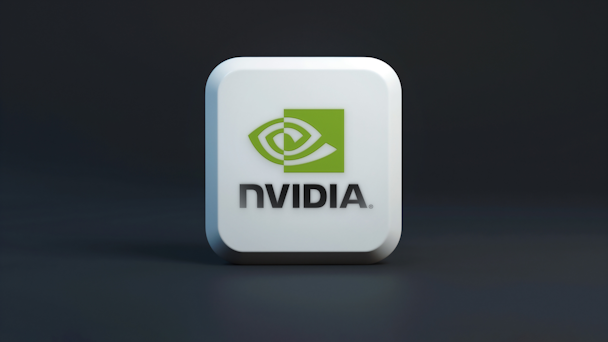Weekly AI Recap: DOJ probes Nvidia acquisition deal, tech companies spend big on AI in Q2
Also, the AI Act goes into effect in the EU.

Nvidia surpassed Apple as the world’s second-most valuable company in June. / Adobe Stock
DOJ to launch antitrust investigation into Nvidia acquisition
The United States Department of Justice (DOJ) is conducting a probe into a deal between American semiconductor manufacturer Nvidia and Israeli startup Run:ai for potential antitrust violations, Politico reported this week.
The deal between the two companies was originally announced in April for an undisclosed amount, though TechCrunch reported a value of $7m. Run:ai specializes in GPU orchestration – essentially enabling companies to maximize the computational power of the chips that power large language models.
The DOJ could be eyeing the acquisition deal as an attempt by Nvidia to close off access to a technology – which could reduce demand for its GPUs, Politico reported. Those semiconductors have become an immensely valuable resource during the recent AI boom and have caused the company’s value to skyrocket. (It recently surpassed Apple as the world’s second-most valuable company).
In June, the DOJ reportedly reached a deal with the Federal Trade Commission (FTC) outlining how the two agencies would deal with potential antitrust violations in the tech industry: The DOJ would investigate Nvidia’s growing dominion over the GPU market, while the FTC would launch a probe into the partnership between Microsoft and OpenAI.
In other Nvidia-related news, the company has also been helping advertising holding company WPP to develop new “3D worlds” features for brands.
Explore frequently asked questions
Tech companies continue to spend big on AI
Some of the world’s leading tech companies posted their quarterly earnings reports over the past 10 days, painting a picture of an industry racing ahead in the competition to develop and deploy AI.
The starting gun for this race went off with the release of ChatGPT in late 2022, an event that unequivocally demonstrated the transformative power of generative AI. Shortly thereafter, Microsoft announced a multiyear investment in OpenAI rumored to be valued at around $10bn.
Meanwhile, other tech giants have been clamoring for their own piece of the AI pie. Meta, for example, has been investing heavily in the rapid growth of its open source model, Llama, the most recent version of which was released last month.
Apple has been charting its own course with the recent announcement of Apple Intelligence – a systemwide upgrade designed to bring new generative AI-powered tools to users – along with its own partnership with OpenAI.
Advertisement
The AI Act goes into effect across the EU
The AI Act, the world’s first comprehensive piece of legislation targeting the use of AI systems, officially went into force on Thursday.
The Act distinguishes between AI “providers” (or developers) and “deployers” (non-developers who are using AI systems), and primarily targets the former. Regardless of where they’re headquartered, AI providers will be required to adhere to the Act if they have any active products or services in the EU market.
The vast majority of AI-powered products and services won’t be impacted to a major degree, as regulators have deemed them non-threatening. A smaller percentage of “high risk” systems, on the other hand, will be subject to a number of new guardrails, including mandatory human oversight. Other systems deemed to present an “unacceptable risk” will be banned.
Advertisement
Perplexity unveils revenue-sharing Publishers’ Program
On Tuesday, Perplexity launched a program that aims to help digital publishers adapt to the era of generative AI-powered search – while also giving them a share of revenues.
In the coming months, publishing partners will be eligible to earn a cut of the revenue anytime they’re cited in a follow-up question generated by the search engine.
Publishers will also be able to build their own custom search engines directly to their websites via Perplexity’s API.
Perplexity’s first batch of partners includes Time, Der Spiegel, Fortune, Entrepreneur, The Texas Tribune and WordPress.com.
Suggested newsletters for you
Runway introduces Gen-3 Alpha image-to-video tool
On Monday, the company released a new feature for its Gen-3 Alpha model that allows users to generate videos from a single image.
Today we are releasing Gen-3 Alpha Image to Video. This update allows you to use any image as the first frame of your video generation, either on its own or with a text prompt for additional guidance.
Image to Video is major update that greatly improves the artistic control and… pic.twitter.com/OieDwMIspz
— Runway (@runwayml) July 29, 2024
Upon signing up for a free Runway account, users are automatically given 125 “credits,” which can be used to try the platform’s various tools; each second of video generated by Gen-3 Alpha uses ten credits.
I tried the new image-to-video feature using an image of the author Joan Didion smoking a cigarette and standing next to a sports car. It took less than a minute for the system to generate a 4-second video, which depicted – without additional prompting on my part – Didion turning away from the camera. Her dress and hair swished slightly in an invisible breeze, and her right arm briefly disappeared – an apparent glitch in the rendering of the video.
For more on the latest happenings in AI, web3 and other cutting-edge technologies, sign up for The Emerging Tech Briefing newsletter.
